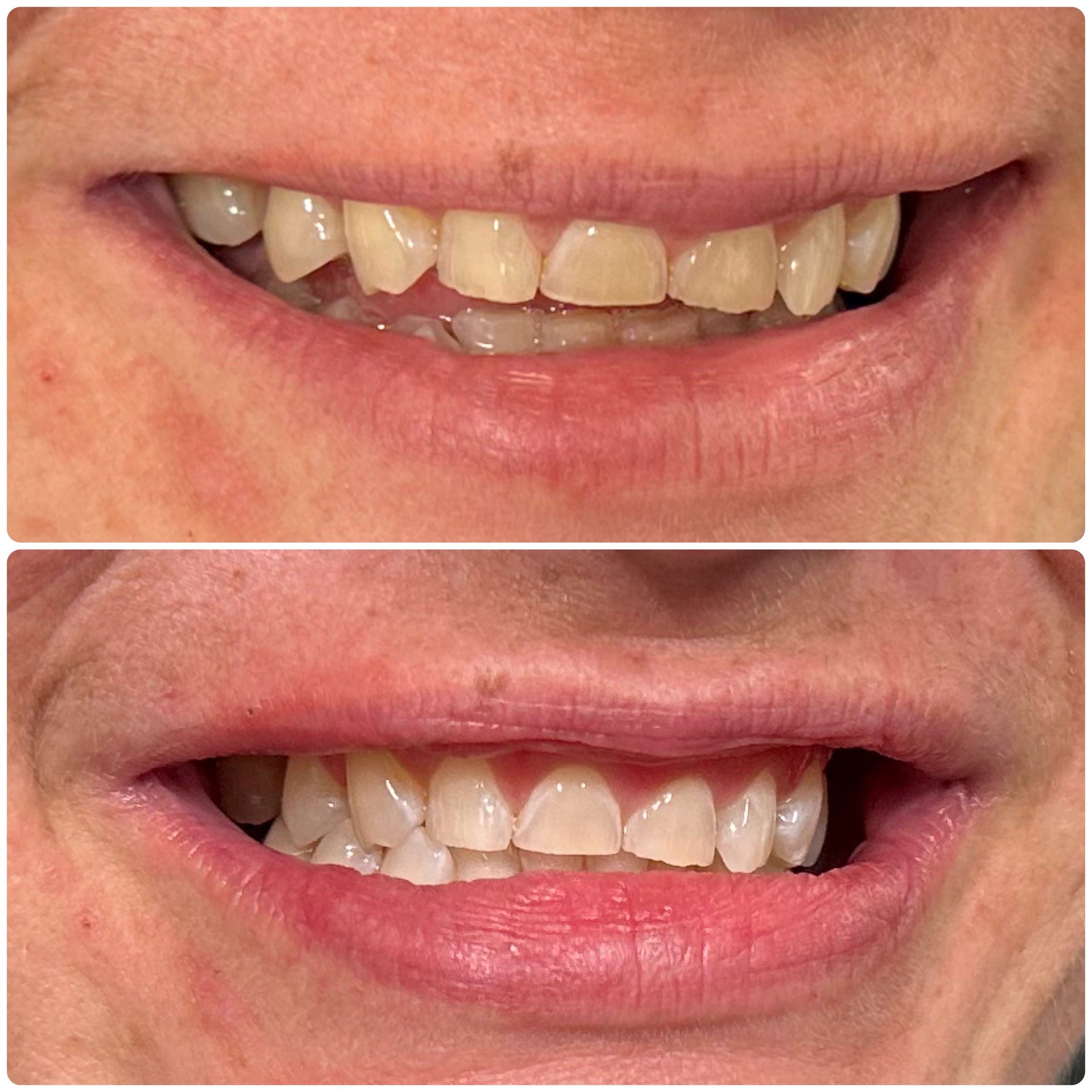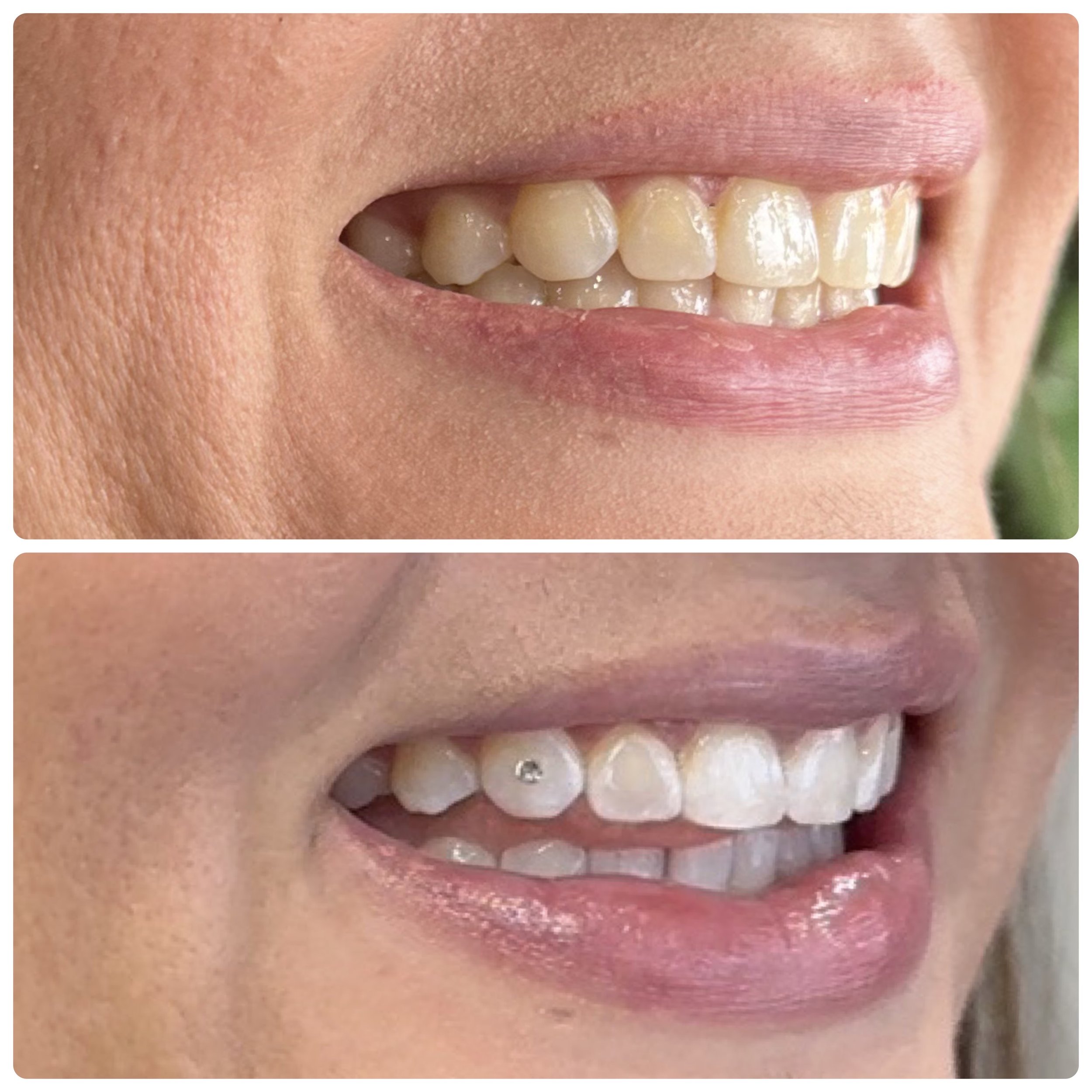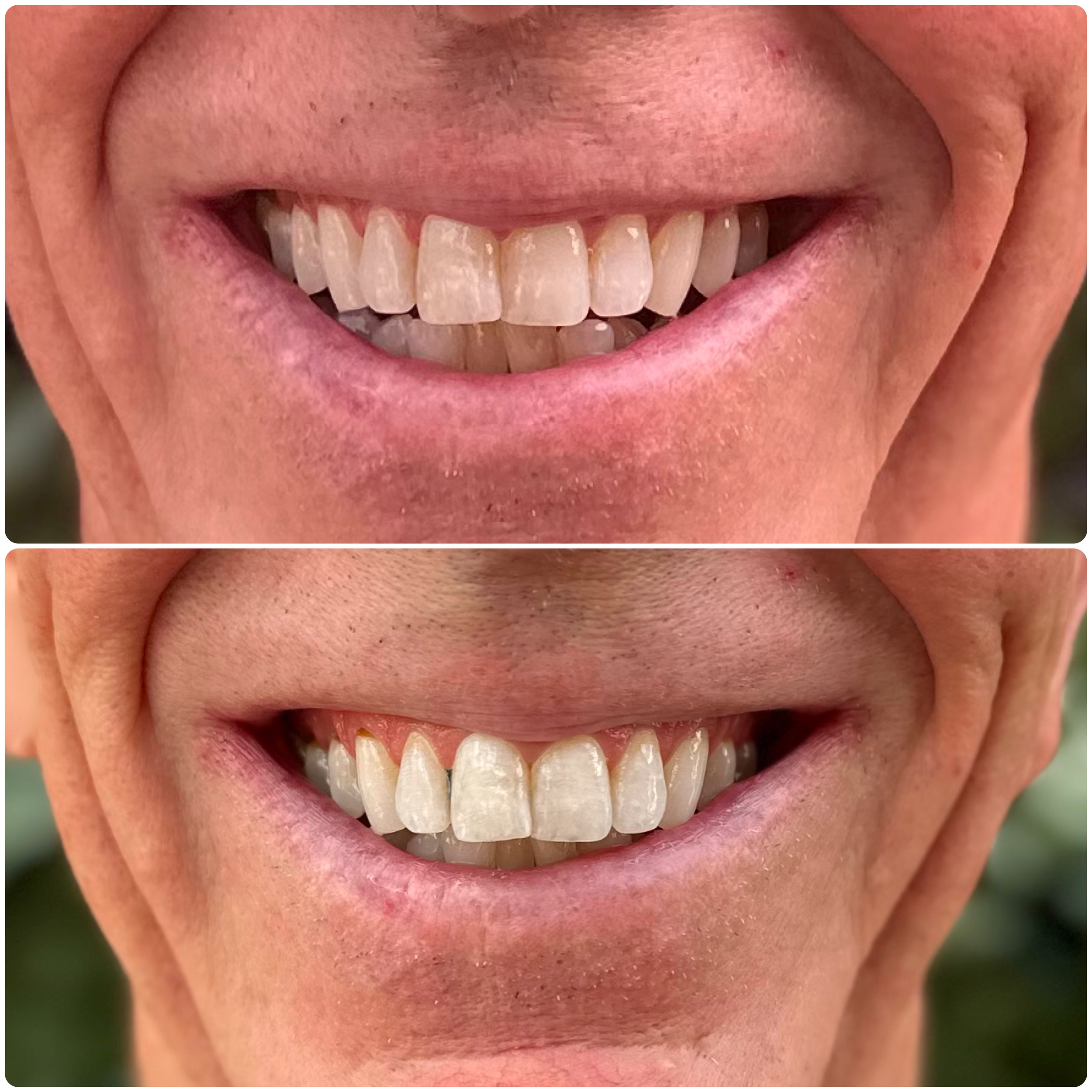What are the benefits of getting my teeth whitened?
In-office teeth whitening can be an optimal choice when it comes to enhancing the brightness of your teeth. Unlike store-bought kits, which often take weeks of consistent usage to achieve desired results, where as one session with professional grade whitening products offers remarkably whiter teeth in just a single visit. Professional whitening ensures a safer experience, protecting your teeth from the potential risk of damage that can be associated with DIY approaches. This personalized approach maximizes the effectiveness of the treatment, ensuring that you get the best possible results. In-office treatments are significantly more powerful than those found in store-bought kits, allowing for a more intensive and thorough whitening process.
How often do I need to whiten my teeth after the first treatment?
Once your desired brightness level is achieved, you likely won’t need to touch-up your smile from a professional whitening session for at least six months to a year, depending on your oral care and lifestyle habits. However, if you frequently engage in habits such as smoking or consuming excessive amounts of coffee or wine, it might be advisable to consider touching up your smile in about six months’ time.
How long will my teeth be white for?
On average, your teeth will remain white for around 6-24 months, depending on various factors such as your oral hygiene habits, dietary choices, and lifestyle. Additionally, being mindful of your consumption of stain-causing foods and beverages, such as coffee, tea, and red wine, can help prolong the whiteness of your teeth. Incorporating whitening toothpaste into your oral care routine may also help maintain the brightness of your smile for a longer duration.
What should I do if my teeth are sensitive after whitening?
To minimize sensitivity after whitening, use the products recommend to reduce sensitivity. If you still feel sensitive 24 hours after whitening continue to avoid hot, cold, very sweet, or acidic foods until the sensitivity reduces. You can also switch to a toothpaste for sensitive teeth that is recommended by the ADA. Remember that sensitivity from whitening is usually temporary. If you have ongoing sensitivity or pain, stop whitening and get in touch with your dentist.
Will tooth whitening damage my tooth enamel?
The answer is no, tooth whitening will not damage your tooth enamel. Enamel, often referred to as the "shield" of our teeth, is an incredibly resilient and hard tissue, making it the hardest tissue in our entire body. It acts as a protective layer, safeguarding the sensitive inner layers of the tooth from external factors that could cause harm. When it comes to tooth whitening, it's important to note that the whitening product doesn't directly interact with the enamel. Instead, it's the layer of tissue beneath the enamel, called dentin, that absorbs the whitening agents. Dentin is not as strong as enamel, but it still plays a vital role in supporting the structure of our teeth.
Can I still get my teeth whitened if I have a cavity?
If you have existing dental problems, such as tooth decay or cavities, it is crucially important to address these concerns before proceeding with any teeth whitening treatments. The reason for this is because whitening products, especially the potent gel formulas commonly used, can have a significant impact on the health of your teeth. If the bleaching agent comes into contact with a cavity, it has the potential to not only cause severe damage to the tooth but also result in a rather unpleasant and painful toothache.






